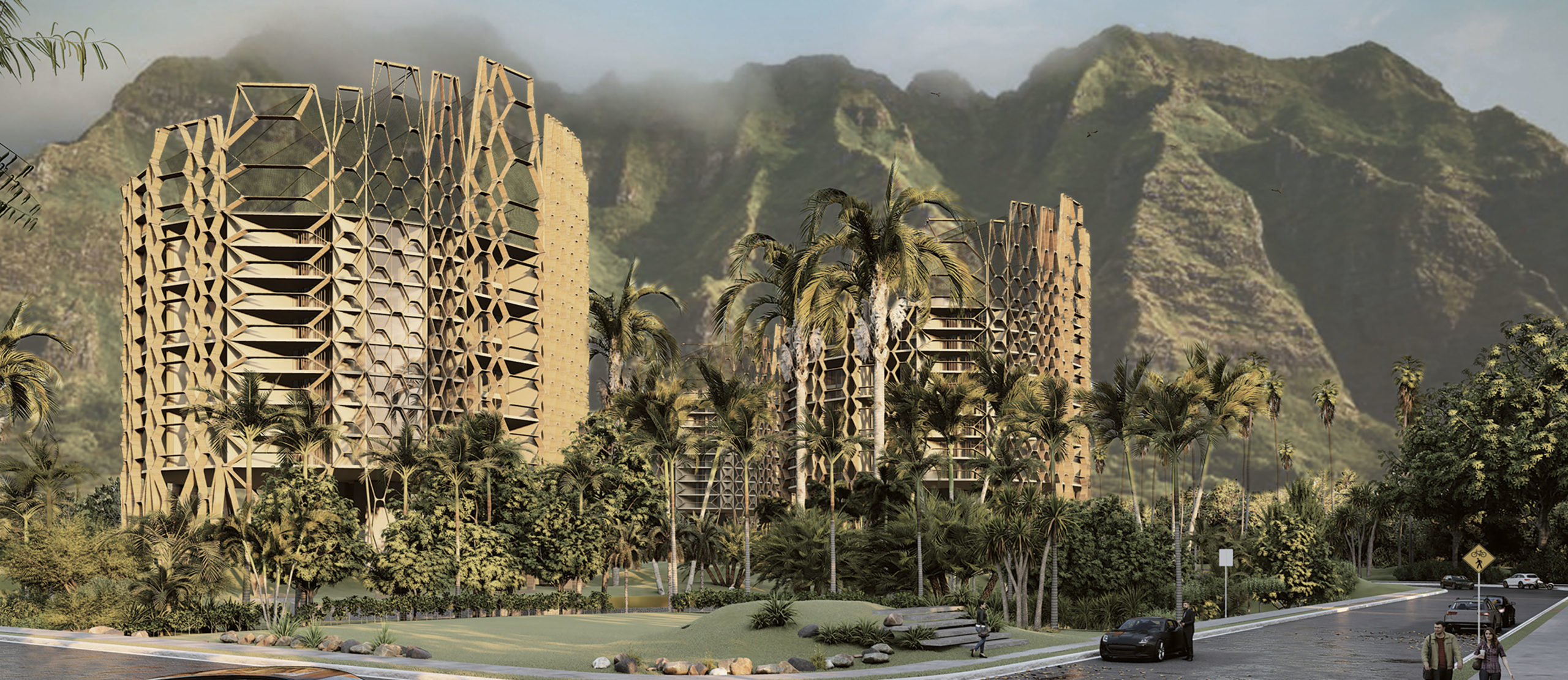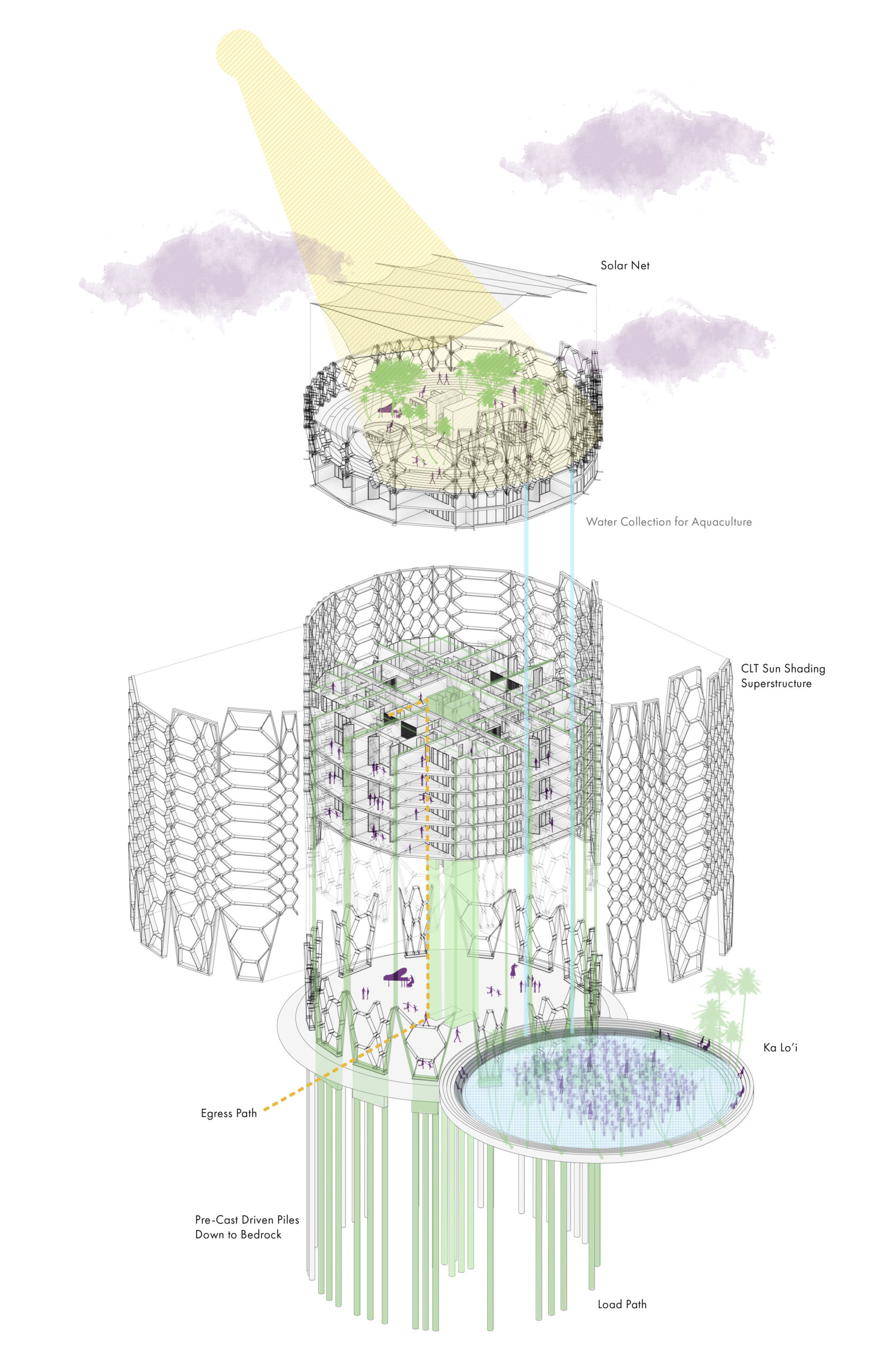Lokahi Malama Aina Ike Pono – Working together to care for the land in the name of integrity and balance
Master Thesis by: Micah Goshi / Thesis Advisor: Mark Mueckenheim
Over time, development has expanded rapidly on the island of Oahu. Land was incrementally taken away from the watershed and, as a result, development has infringed on the natural ecosystem of the island, diminishing the island’s natural resources. The proposed project, Lokahi (Unity), seeks to integrate ideas of the ahupua’a in the modern context of architecture and land use in order to provide a sustainable future for Hawaii. The project focuses on sustainability, giving land back to the watershed through densification, and strengthening the connection between people and the island’s ecosystems. “Lokahi Malama Aina Ike Pono” is a well-known phrase that translates to “Taking care of the land together in the name of honor and integrity.” The proposed design utilizes contemporary means to fulfill this premise, and in doing so it creates a different example for future urban growth on the island.

The thesis proposes a sustainable urban housing project which is tightly interwoven with an urban park and aquaponics farm, based on the philosophy of ancient Hawaiians. The programs of Lokahi include mixed housing, community ka lo’i, and an open park-scape. This program is achieved by the aggregation of different types of wood stilted buildings overlapping ka lo’i below. Community ka lo’i will not only strengthen the connection between the people and the aina (land), but strengthen the ties between and among them, as well. Each building will follow a strict 100-foot setback away from the water in order to give land back to the watershed and will follow a valley style of aggregation in order to maximize the efficiency of PV net system on each building’s roof. Each residential building will have a mix of different unit types in order to provide opportunity for housing people with different social and professional backgrounds and needs. Each building is protected by a woven wood sun shading system reminiscent of a Hina’i (fish trap) in order to combat heat exposure. Lokahi’s combination of density, aggregation, tectonics and programming will provide a unique step towards future of sustainable development In Hawaii.

